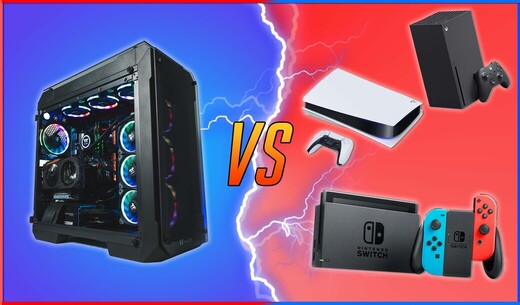現在のブログ
ゲーム開発ブログ (2025年~) Gamedev Blog (2025~)
レガシーブログ
テクノロジーブログ (2018~2024年) リリースノート (2023~2025年) MeatBSD (2024年)

【Game Development】Why Develop for Switch or Switch 2
When talking with other indie game developers, I'm often asked why I make games for the Nintendo Switch or Switch 2 instead of Steam, web, or mobile.
The reasons are several, and they're actually quite simple.
1. Familiarity with Nintendo Consoles
I'm known for running a tech-related blog and developing a lot of open-source software for PC and web.What's less known is that since June 2013, I've been a certified third-party game developer for Nintendo consoles, and since 1996, I've almost exclusively played on Nintendo consoles, only recently starting to play on PC.
In short, the type of games I want to make aligns well with Nintendo's gamer audience.
It's easy for me to create games with a Nintendo-like play feel, while making games like those for PC, mobile, or PlayStation is harder.
The oldest platform I legally had SDK access to was the Nintendo DS, but releasing a commercial product in 2013 was unrealistic, so I only made prototypes and released nothing.
However, I did release two Nintendo 3DS-exclusive and Wii U-exclusive games.
I also experimented with the NintendoWare framework on the Nintendo 3DS for a canceled game between 2016 and 2018.
Last year, I relearned game development for the Nintendo Switch, studying how to make games using the NintendoSDK and NVN, prototyping several ideas before settling on a final concept.
So, I'm already familiar with Nintendo console development kits.
2. Respectful Relationship
Since becoming a third-party developer in 2013, I also applied for PlayStation and Microsoft development kits.
Sony granted me access to PSVita and PS4 but not PS5.
Microsoft approved my application but denied access until I proposed a GDD (Game Design Document).
Among these three companies, Nintendo treats indie game developers with the most respect and is the most willing to provide support in necessary areas.
They're also the most patient when I ask silly questions.
3. Clear Hardware Requirements
When developing for PC, web browsers, or mobile, there's always a risk that a game works on your device but not on others', requiring thorough testing across various generations and hardware configurations.
You need to consider GPU compatibility (Nvidia, AMD, Intel), CPU compatibility (Intel, AMD, ARM), OS compatibility (Windows, macOS, Linux), whether required runtime libraries (OpenGL, Vulkan, DirectX) are installed, the risk of binaries failing to run due to missing library files, and users not knowing how to set permissions.
In contrast, with consoles, you typically only need to test on one or two main platforms (e.g., Switch and Switch OLED, PS5 and PS5 Pro, 3DS and New 3DS), and it's guaranteed to work for everyone who owns the console.
Platform holders provide test kits, which look and function like regular consoles but run a slightly different OS, allowing only development builds to run, not regular console games.
4. Resistance to AI Slop and Excellent Documentation
The Switch, PS5, and Xbox are all heavily protected by NDAs, so you can't have ChatGPT make console games for you.
There's also no online community to rely on.
This makes proper documentation critical, and Nintendo provides excellent documentation and sample demos, updated with SDK changes.
However, Unity and Unreal are available on all three consoles, and you can rely on community support for non-console-specific features.
It's fine for someone to use Unity or Unreal for their first game, but in the long term, I strongly believe you should learn to build your own game engine using provided tools (e.g., Vulkan for PC, NintendoSDK + NVN for Switch).
5. Quality Control
Before releasing a game, you need to pass Lotcheck.
I'm not sure if this is required for Xbox, but both Nintendo and PlayStation mandate it.
If the final ROM complies with all rules and has good quality, passing isn't too difficult.
However, when I released games for Wii U and 3DS, the most valuable part of this process was the constructive feedback.
For example, in a Wii U game, the score screen only showed numbers, and it was pointed out that it wasn't clear what they meant. I added labels to clarify their meaning.
Of course, they don't perform full QA testing to catch every bug, but even basic feedback is extremely valuable.
The Best Time to Become a Third-Party Developer?
It depends on the current state of the console market.
Nintendo is far more open to indie developers when their console sales are poor.
When I signed up, the 3DS was struggling, and the Wii U was a complete failure, so they welcomed me.
But now, with the Switch selling extremely well, they're much stricter about who they accept.
Sony is the opposite: they're very welcoming when their consoles are doing well but stricter when they're struggling or failing.
The PS4 was doing great, so my application was easy, but the PS5 is struggling, so it's much harder now.
In a way, the early to mid-2010s were a golden era for becoming a console game developer.
Despite the advantages mentioned above, I understand why new game developers now focus on Steam or mobile.
I'll add that the best time to become a game developer for any platform is when the industry is collapsing.
I explained this in detail in this article.
That's all